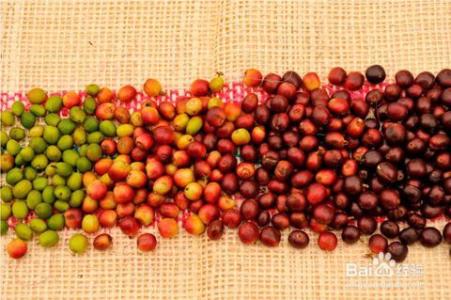Description of Burundian aa Coffee Bean Flavor introduction to Grinding scale of Regional treatment method for Taste production
Description of Burundian aa Coffee Bean Flavor introduction to Grinding scale of Regional treatment method for Taste production
Burundi has the most diverse and successful coffee industry in the world, and has its own characteristics. Coffee in this country was introduced by Belgian colonists in 1930 and is now grown only on small farms. Unfortunately, many of these farms are on the border with war-torn Rwanda, putting pressure on coffee production. Almost all coffee produced in Burundi is Arabian coffee beans, while coffee trees in Ngozi are planted at an altitude of more than 1200 meters. Burundian coffee has a rich aroma and excellent acidity, and most of its products are exported to the United States, Germany, Finland and Japan.
Burundi is a very interesting country for us. Little is known about coffee, and coffee producers and processors cannot price their coffee, just as people cannot identify uncarved jade, so people here do not have the income to do the same planting and processing methods that are being used in other countries. Like Panama. " Tim Maestas (USA) of Augies Coffee said that
Londi Coffee bears a striking resemblance to neighboring Rwanda, where coffee from the two countries is often confused. Burundian coffee is mainly grown in bourbon, with traditional wet processing of coffee cherries. Its boutique coffee is characterized by elegant sweetness and bright citrus aromas.
Burundi is a small landlocked country located at the junction of eastern and central Africa, across the Nile and Congo basins, dominated by hills and mountains, with excellent coffee-growing elevations. The history of coffee cultivation in Burundi is not long, its coffee planting industry is carried out entirely in the form of small family farms, there is a great difference in quality, and years of war and social unrest have made its coffee planting industry very chaotic. But I have to admit that it has the potential to produce high-quality coffee.

Important Notice :
前街咖啡 FrontStreet Coffee has moved to new addredd:
FrontStreet Coffee Address: 315,Donghua East Road,GuangZhou
Tel:020 38364473
- Prev

Introduction of Tarazhu Coffee Flavor treatment method in LA PASTORA Manor of Costa Rica
Costa Rica LA PASTORA Manor Tarazu Coffee Flavor processing Variety producing area introduction Costa Rica has many excellent producing areas, while the high-quality producing areas of Costa Rica have a common understanding of quality, that is, it requires the use of mature coffee fruits to ensure the production of high-quality coffee. Costa Rica has a deep coffee culture and superb coffee skills.
- Next

What is the latitude of Panamanian Poquet? Flavor description, taste, variety production area grinding scale
What is the latitude of Panamanian Poquet? Flavor description: grinding scale espresso in the producing area requires a high balance of coffee beans, because the conditions of Italian coffee extraction are extremely harsh, so some defects may be infinitely magnified in the extraction. the taste that could have been endured, then magnified, became unbearable. So, that's why.
Related
- Detailed explanation of Jadeite planting Land in Panamanian Jadeite Manor introduction to the grading system of Jadeite competitive bidding, Red bid, Green bid and Rose Summer
- Story of Coffee planting in Brenka region of Costa Rica Stonehenge Manor anaerobic heavy honey treatment of flavor mouth
- What's on the barrel of Blue Mountain Coffee beans?
- Can American coffee also pull flowers? How to use hot American style to pull out a good-looking pattern?
- Can you make a cold extract with coffee beans? What is the right proportion for cold-extracted coffee formula?
- Indonesian PWN Gold Mandrine Coffee Origin Features Flavor How to Chong? Mandolin coffee is American.
- A brief introduction to the flavor characteristics of Brazilian yellow bourbon coffee beans
- What is the effect of different water quality on the flavor of cold-extracted coffee? What kind of water is best for brewing coffee?
- Why do you think of Rose Summer whenever you mention Panamanian coffee?
- Introduction to the characteristics of authentic blue mountain coffee bean producing areas? What is the CIB Coffee Authority in Jamaica?

